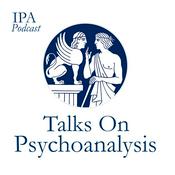In the wake of profound cultural change, the traditional image of the father has been destabilized, prompting renewed psychoanalytic reflection. No longer confined to authority alone, the paternal figure is now expected to embody both care and limit. What psychic space does the father occupy in the life of the child? In this episode, Heribert Blass explores fatherhood through a contemporary psychoanalytic lens.
Drawing on clinical experience, interdisciplinary research, and cultural observation, he outlines a model of committed paternity that integrates emotional presence with symbolic function. From early play to Oedipal conflict, the father's task is to protect, to differentiate, and to support the child's path toward autonomy. Rather than fading, he emerges as a complex figure situated at the intersection of intimacy, separation, and symbolic function—and essential to the child's inner world.
Heribert Blass, medical doctor, is a psychoanalyst for adults, children, and adolescents; a training and supervising analyst of the German Psychoanalytic Association and the IPA; also a specialist in psychosomatic medicine and psychotherapy, and psychiatry, working in private practice in Düsseldorf, Germany. He is the president-elect of the IPA and served as president of the European Psychoanalytic Federation from 2020 to 2024. His publications cover a wide range of topics, including male identity and sexuality, the image of the father, supervision, generativity both in clinical work and within psychoanalytic institutions, boundary violations, the relationship between internal and external reality, psychoanalysis and society (especially during the COVID-19 pandemic), as well as time and the experience of time.
French
German
Italian
Portoguese
Spanish
You can download a copy of the paper here
This Podcast Series, published by the International Psychoanalytical Association, is part of the activities of the IPA Communication Committee and is produced by the IPA Podcast Editorial Team.
Co-Editors: Gaetano Pellegrini and Nicolle Zapien.
Editing and Post-Production: Massimiliano Guerrieri.
To stay informed about the latest podcast releases, please sign up today.



